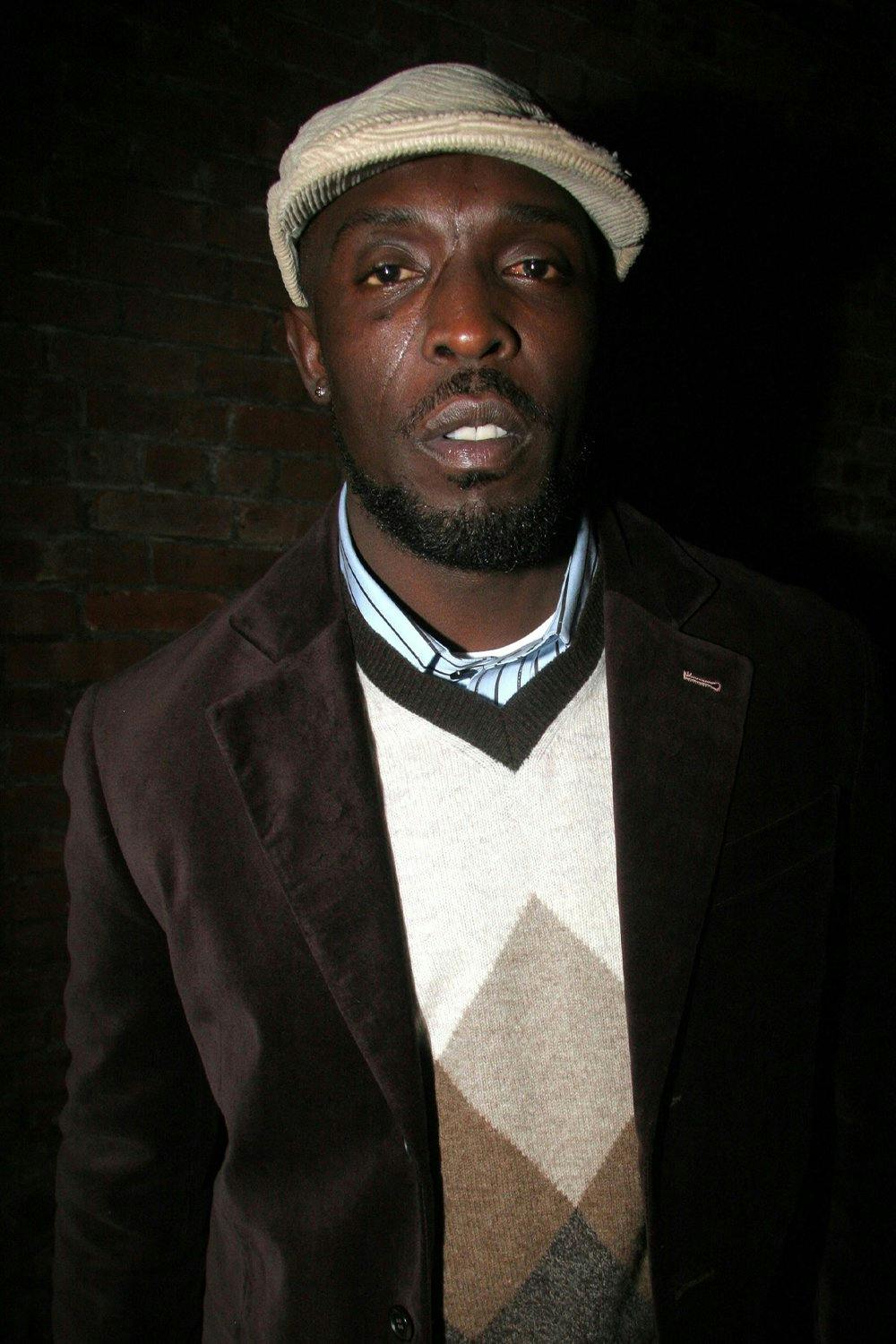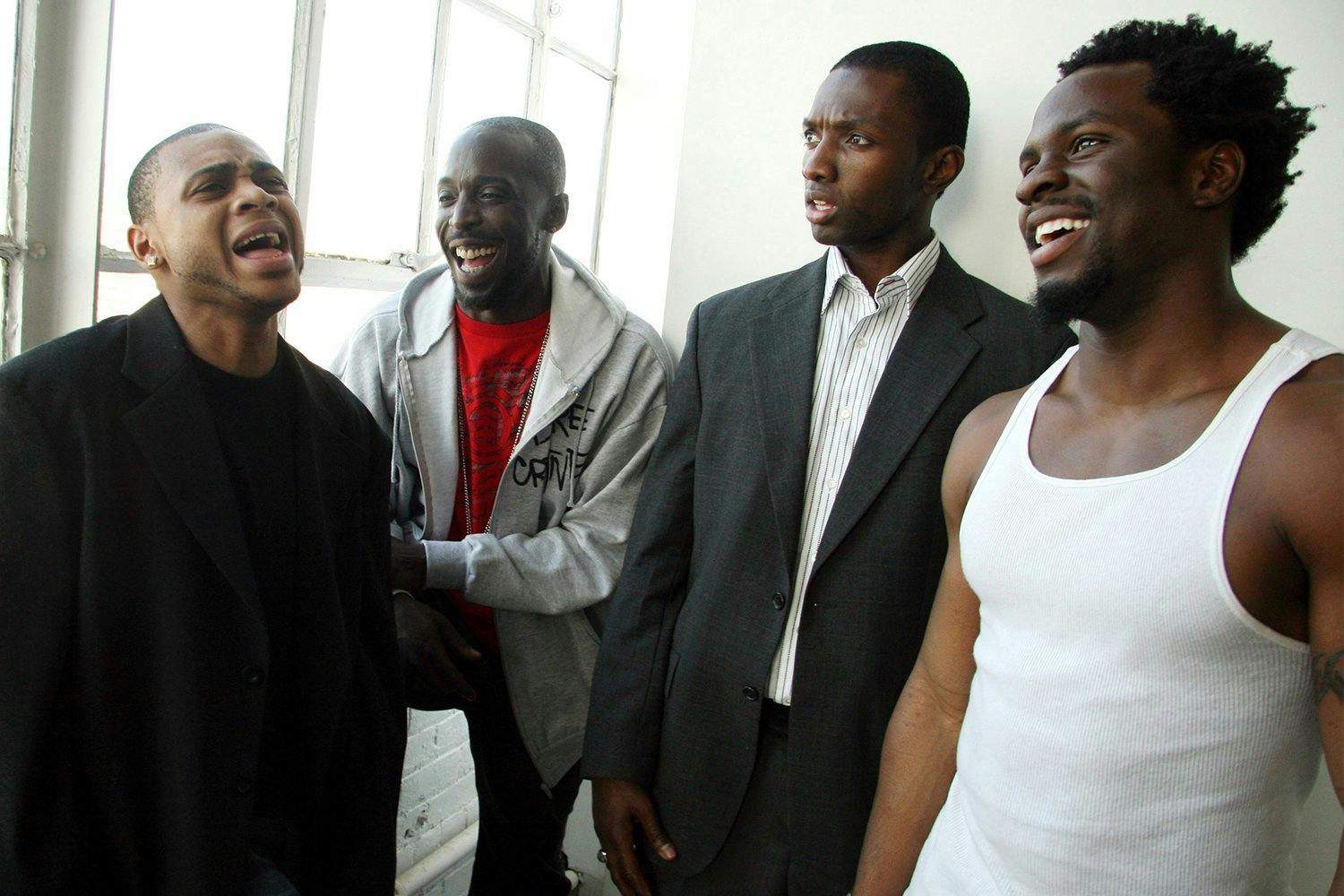
Michael K. Williams: Brilliantly Powerful, Beautifully Human
Michael K. Williams: Brilliantly Powerful, Beautifully Human
Published Tue, September 7, 2021 at 1:50 AM EDT
Editor's Note: This article was originally published September 7, 2021
Michael K. Williams has died.
The acclaimed actor who rose to fame as Omar Little on HBO's The Wire and who would go on to earn raves for his performances on other popular HBO shows Boardwalk Empire and Lovecraft Country was found dead in his Brooklyn apartment on Labor Day, September 6, 2021. The news shocked and stunned fans, colleagues and friends across the spectrum; as Williams was one of the most beloved actors on the big and small screens.
That love was more than earned by the master thespian, a born and raised New Yorker who'd emerged as a gifted performer with a penchant for injecting a brilliant humanity into characters often operating on the shadowy sides of society; whether it be a Baltimore stick-up artist or a numbers runner during Prohibition.
His troubled teen years in Flatbush, Brooklyn led the young Michael to turn his focus to acting as an outlet. After seeing Janet Jackson's "Rhythm Nation" music video, Williams had an epiphany and decided to get his life together. He eventually got a job at Pfizer, before eventually enrolling at Harlem's National Black Theatre and he also became a dancer.
"I was just that club kid in the clubs in New York City with his, you know?"
DROP YOUR EMAIL
TO STAY IN THE KNOW
"With his suspenders on backwards, the loud floral shirt, the baggy jeans, the high-heel marshmallow shoes with the big platform doing half-splits in the club," Williams shared with NPR in 2019. "I was that dude. And I got really blessed and was able to parlay it into a dance career being at the right place at the right time and surrounding myself by the right people."
A bar brawl led to the famous scar on his face, and that scar got him cast as a tough in numerous small projects, from music videos to indie films. But he was no street hustler, never had been.
"I'm a stoop kid. I wasn't allowed to go to the corner," he told TIME in 2009. "My mother wouldn't allow that type of behavior in the house. She was very strict about that. I know nothing of what it is to be a gangster. I grew up with gangsters. I have a lot of love for my friends who grew up like that within my neighborhood. But it was clear that I was not cut from the same cloth, and I knew when to stay in my lane and not go overboard and be someone I wasn't."
2Pac saw a photo of the burgeoning model/dancer and suggested him for the 1996 drama Bullet. It kickstarted Williams as an actor, landing work in plays and also on television shows like NYPD Blue. One of his most high-profile early appearances was a role on HBO's hit The Sopranos. But it was playing Omar that really brought Williams into the spotlight.
The character became one of the pillars of The Wire, and it's easy to see why: there was nothing like Omar Little on television before Omar Little. He was a violent man with a strict moral code, never used profanity, openly gay, and a penchant for robbing drug dealers. Williams portrayed the role with vigor, making Omar one of television's most memorable characters.
It's understandable why so many would say that Williams' great strength as a performer was his vulnerability: for much of the viewing public, the kinds of characters he played were men who society only deems violent criminals and street thugs. But as a Black man watching him inject so much nuance into Omar and the often just-as-compelling Chalky White of ...Empire, it was the power and grace that he brought to such characters that really defined Michael K. Williams as an actor.

On The Wire, Omar's most infamous scene occurs during a season two confrontation in a courtroom between Little and sleazy attorney Maury Levy, played by Michael Kostroff.
After Levy admonishes Little as "amoral" for "feeding off the violence and the despair of the drug trade," Little confidently turns the table on the lawyer, pointing out the hypocrisy of a defense attorney who works for drug dealers.
"I got the shotgun," Omar says with a smirk. "You got the briefcase."

The scene is a favorite with fans and critics and is often referenced when pointing out the show's brilliance. But for this longtime fan, the best scene involving Williams as Omar occurs during Season Three; when Little is confronted by Detective "Bunk" Moreland about the murder of one of Little's associates. Bunk lays into Omar, a man he'd known when they were both high school students, about the human toll of what Little does. As Bunk, actor Wendell Pierce shines in the scene, communicating the characters rage and frustration. But it's Williams as Omar, sitting in what begins as defiance, slowly starting to crack as he endures Bunk's righteous harangue. It's a powerful scene for both actors and one of the show's best; it encapsulates why Williams was so endlessly compelling onscreen. He communicates so much humanity, even without very many lines.
"When The Wire and the character of Omar ended, I had zero tools, personally speaking, in how to deal with letting that go," Williams would explain to NPR. "I wasn't going around robbing people or anything stupid like that, but I definitely wore that dark energy that Omar was. He was a dark soul, tortured soul. And I just woke all of that up and lived in that so when - and that's what people was attracted to - his - whatever they were attracted to, I just didn't know how to differentiate, OK, that is Omar's love, and then you have Michael's love. The lines got blurred. It was a little too close to the white meat at the time."
Michael K. Williams did bring humanity to characters drawn from types that our society often pushes to the fringes; but his greatness was his ability to recognize those characters' power. His Chalky White is one of the most layered characters in the annals of HBO's oeuvre, a family man and community leader who doesn't defer to the white powers-that-be or white criminal interests around him. Chalky is both proud and insecure, passionate but shrewd, and Williams imbues him with a strength that is uniquely his.
Williams would breathe life into so many other riveting performances; on Netflix's When They See Us, in the musical biopic Bessie, in films like Gone Baby Gone and 12 Years A Slave; and as Montrose Freeman on HBO's supernatural period series Lovecraft Country, for which the actor is currently nominated for an Emmy.
Hearing the news that Michael K. Williams has died, that we've lost this titan of an actor, wounded my spirit. It's tempting to take his death and sit it alongside other high profile losses: Chadwick Boseman, DMX, Biz Markie, Kobe Bryant, and others. But sometimes we can curate death in an effort to find something profound; collecting fallen celebrities via meme and Twitter thread for the purposes of finding some kind of connective thread thru it all.
No, I sit all of these painful losses in their individual space. And the loss of Michael K. Williams feels deeply unfair. He struggled with demons while gracing us with his talents. Beyond his performances, here was an impassioned, creative soul who attempted to give us the best he had to offer. We were fortunate to bear witness for the time that we had him.






